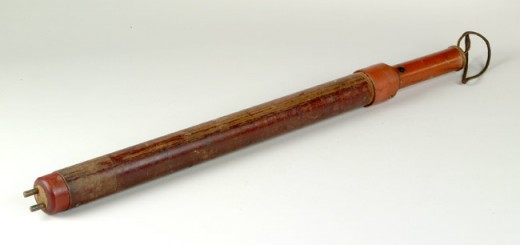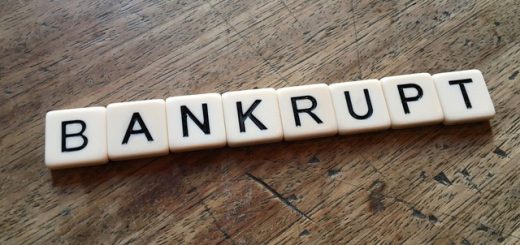Revisiting Expert Evidence: The New Test for Bias in Burgess
In White Burgess Langille Inman v Abbott and Haliburton Co, 2015 SCC 23 [Burgess], the Supreme Court of Canada (“SCC”) established a test for assessing the impartiality of expert witnesses.
The issue arose when shareholders of a company obtained a new accounting firm, Grant Thornton LLP, which discovered errors in the previous auditors’ work. The shareholders brought a professional negligence action against the previous auditors, the defendants—the appellants in the present action—who responded by bringing a motion for summary judgment. The shareholders retained Susan MacMillan, a forensic accountant and partner at Grant Thornton LLP, to prepare a report on the errors made by the previous auditors. The appellants brought a motion to strike Ms. MacMillan’s affidavit; they submitted that Ms. MacMillan was biased as she had a financial interest in the outcome. The appellants maintained that there were conflicting auditor’s opinions. If the appellant auditors were successful in their claim, then Grant Thornton LLP could be exposed to liability, and Ms. MacMillan could be found personally liable as a partner of Grant Thornton LLP.
In Burgess, the SCC held that past business relations between a litigant and a proposed expert does not automatically render the expert biased.
The Lower Courts
Pickup J accepted the submissions of the appellant auditors and struck out the MacMillan affidavit. Pickup J held that the expert evidence “must be, and seen to be, independent and impartial” (Abbott and Haliburton Company v WBLI Chartered Accountants, 2012 NSSC 210, para 99). He concluded that this was a clear case where the reliability of the expert does not meet the threshold requirement for admissibility.
In a split decision, the Nova Scotia Court of Appeal overturned the trial court. Beveridge JA held the motion judge had erred by including perception of independence and impartiality in the test for the admissibility of expert evidence (Abbott and Haliburton Company v WBLI Chartered Accountants, 2013 NSCA 66, para 162 [Burgess NSCA]).
The Role of Expert Witnesses
An expert witness is required to provider fair, objective, and non-partisan assistance to the court. Expert witnesses are an exception to the general rule that witnesses shall only testify about facts they perceive, and not inferences they draw from those facts. The reason for this general rule is that inferences are not helpful to the trier of fact, who is tasked with drawing inferences from the full record presented at trial. The courts have created an exception for expert witnesses, as the courts have acknowledged that the trier of fact may require assistance from someone possessing special knowledge or skill to interpret specific facts. In R v Abbey, the SCC held that, “judges and jurors are not necessarily equipped to draw true inferences from facts stated by witnesses” (R v Abbey, [1982] 2 SCR 24, 42 [Abbey]).
Risks Posed by Expert Evidence
Courts have long been concerned about whether expert witnesses who have been hired by litigants express their own unbiased and independent professional opinion. Over a century ago, Sir George Jessel MR opined, “we constantly see persons, instead of considering themselves witnesses, rather consider themselves as the paid agents of the person who employs them” (Lord Abinger v Ashton, (1873) LR 17 Eq 358, at 374). The SCC, like Beveridge JA in the Court of Appeal, relied on the findings of The Commission on Proceedings Involving Guy Paul Morin: Report (1998) and the Inquiry into Pediatric Forensic Pathology in Ontario: Report (2008) that “forensic scientific opinion has played a prominent role in the miscarriage of justice” (Burgess NSCA, para 105).
There is a further risk that the jury will give the expert evidence undue weight, which “distorts the fact-finding process” (R v Mohan, [1994] 2 SCR 9, 21, [Mohan]). This concern was reiterated in R v DD, [2000] 2 SCR 275, which acknowledged, “jurors are more likely to abdicate their role as fact-finders and simply attorn to the opinion of the expert in their desire to reach a just result” (para 53).
The Test for Admitting Expert Evidence
The SCC adopted, with minor adjustments, the two-stage test for admitting expert evidence in Abbey. At the first step, the party attempting to admit the proposed expert evidence must demonstrate the threshold requirements of admissibility set out in Mohan. Mohan established four factors: logical relevance, necessity, absence of an exclusionary rule, and a properly qualified expert. Evidence that does not meet this threshold should be excluded.
During the second stage of the test, the judge conducts a cost benefit analysis of admitting the evidence. At this stage, the judge uses his or her discretion to balance the potential risks and benefits of admitting the evidence.
It is a threshold requirement that a proposed expert is aware and willing to meet this special duty to the court. Even when this threshold is met, concerns about a proposed expert witness’ independence or impartiality should still be considered at the judicial discretion stage.
The Expert’s Duties and Admissibility
The SCC addressed two questions in Burgess:
- Should the elements of an expert’s duty to the court go to admissibility of the evidence rather than simply to its weight?
- And, if so, is there a threshold admissibility requirement in relation to independence and impartiality?
The SCC answered both in the affirmative. The SCC held that potential bias should be properly considered as part of the “qualified expert” factor of the Mohan framework. If an expert is unable or unwilling to provide an independent and impartial opinion, per their duty to the court, than they are not a “properly qualified expert” (Burgess, para 53).
Application to Case
The existence of an interest or a business relationship with a litigant does not automatically make the proposed expert evidence inadmissible. A court should be more concerned if a proposed expert had a direct financial interest in the outcome of the litigation. There were no findings to ground Pickup J’s ruling that Ms. MacMillan was biased or was an advocate for the shareholders who retained her firm. Furthermore there were no findings that the shareholders dictated to Grant Thornton LLP’s to find that past auditors were negligent. As such, the appeal was dismissed.








Join the conversation